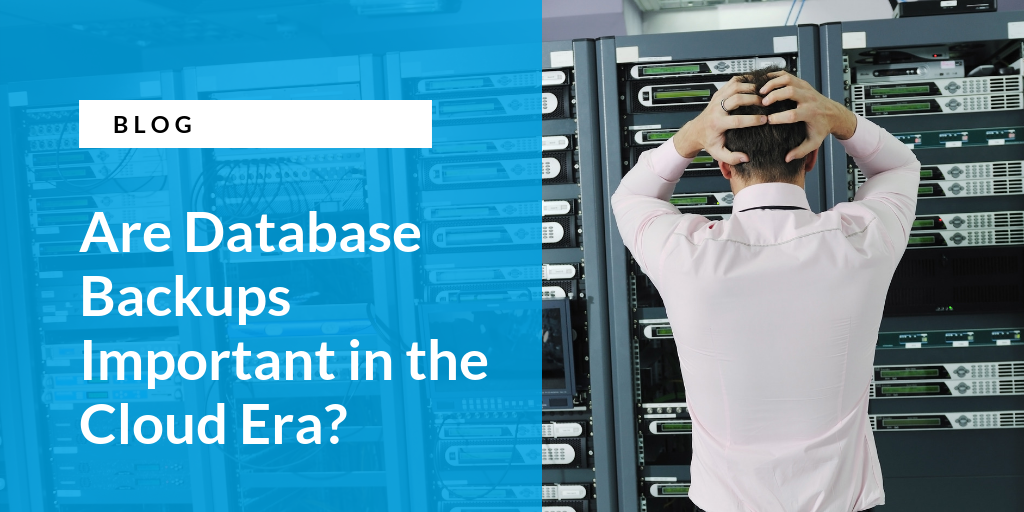|
In an era where Digital Transformation and Cloud Technology drive how businesses make decisions, are database backups still necessary? Choosing to use software that sits ‘in the cloud’ or apps that download and connect you to your data with minimal learning time, might leave you thinking it removes any responsibility you have for making sure your data is being backed up. But is it this easy? Is it safe to assume that wherever that ‘cloud’ is, your data is being managed with the same precision as you would do yourself if it was on hardware in your building? How we got to this point:Thirty years ago the stand-alone computer that contained all of a company’s data was locked in a closet nightly. Literally a closet…usually located along the least used hallway in the building. That closet was treated much like a bank vault. Only certain individuals were granted access through that door. Employees caught walking down that hallway were met with 20 questions before they could proceed on, in order to make sure they were allowed to be there. Backups were made nightly/weekly/monthly and stored off site. The IT department was responsible for all of these activities. Then, organizations changed to placing their corporate data on a server accessible by everyone in the company. Security policies were put in place assigning each employee to a role. The role defined what access, or permissions, the individual was granted to in the database. IT departments managed the security policies and were responsible for maintaining employee access rights. Servers were set up with mirroring capabilities and virtual images were created to store backups. If a server went down, the backup servers could be configured for direct access. The IT department was responsible for managing these practices. Now, companies trust a third-party Cloud Solutions Provider (CSP) to maintain the hardware, software, operating system, databases and access to each. Companies have downsized, and in some cases eliminated altogether, their IT department. They depend on the CSP to provide all IT related services. The CSP is now responsible for maintaining security policies. The company’s ability to manage disasters rests in the agreements they have with the CSP. Do you know if, and how often, your database is being backed up?Cloud providers usually include this information in their Disaster Recovery Plan, which is part of the service you’re paying for (it's important to read all the provisions of a Cloud Solutions Provider). Make sure to ask your CSP to demonstrate proof that the Disaster Recovery Plan is more than just backing up the database regularly. Whatever backup method is being used, the provider should be able to prove they can recover/restore the backups in a reasonable timeframe. Having backups that cannot be restored or recovered is of no value. Downtime is one thing. Losing years of history and your current activity is something completely different. Imagine the following scenario:
Similarly, when customers can't pay, it strains cash flow and makes it harder for you to pay your bills. This is not a situation you want to find yourself in. So the answer is YES. Database backups are still relevant and important! Regardless of who you have tasked with maintaining your data, at the end of the day it is YOUR data. Making sure you make one extra inexpensive backup every once in a while can prove to be worth its weight in gold.
1 Comment
Thank you for sharing this relevant and useful information. this is great and important information, If you want to bring your app ideas into action, then check out our services at <a href="https://www.openteqgroup.com/services/cloud-services"> top cloud services company in india </a>,<a href="https://www.openteqgroup.com/services/cloud-services"> top cloud backup solutions company in india </a>
Reply
Leave a Reply. |



 RSS Feed
RSS Feed